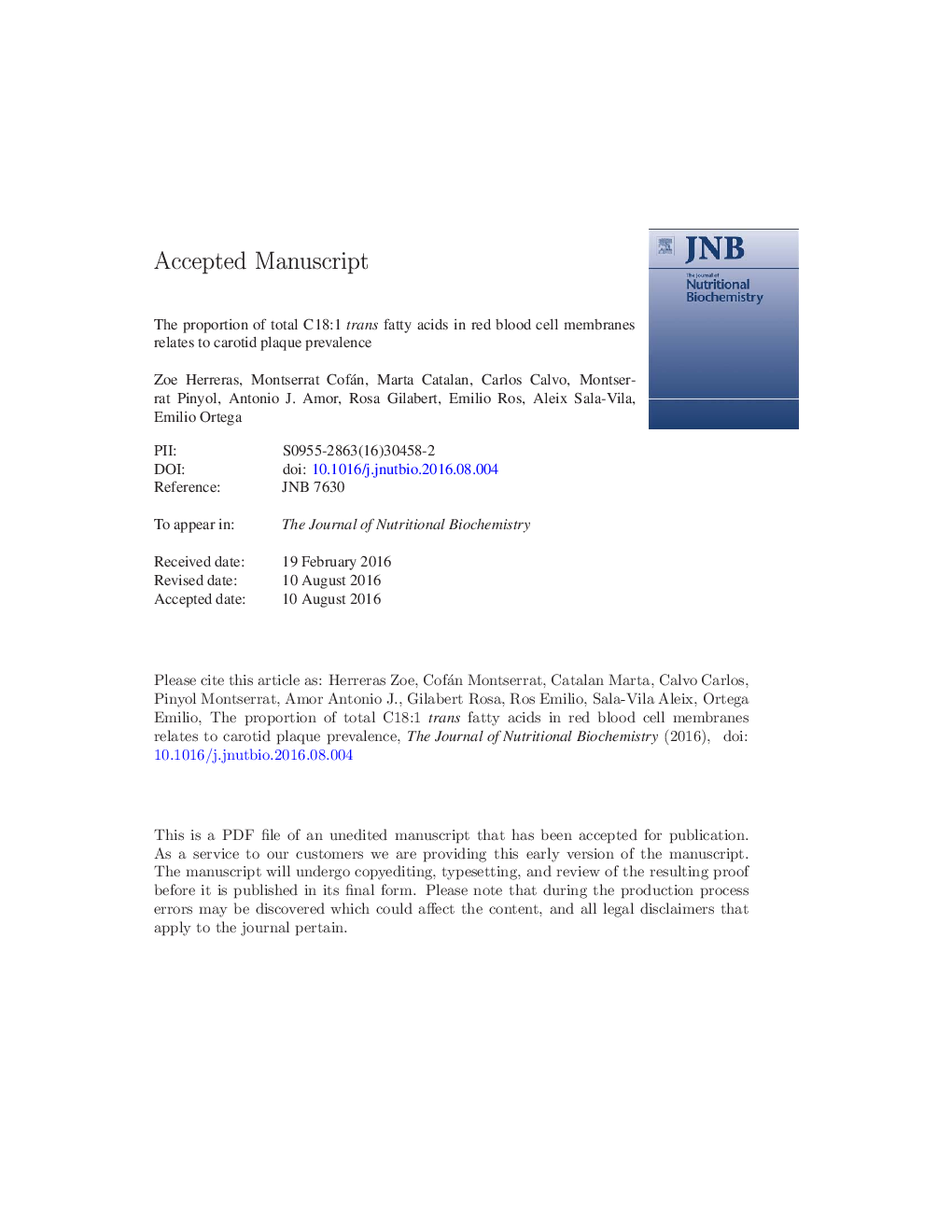| Article ID | Journal | Published Year | Pages | File Type |
|---|---|---|---|---|
| 8336512 | The Journal of Nutritional Biochemistry | 2016 | 27 Pages |
Abstract
Consistent evidence supports the pro-atherogenic properties of dietary trans-fatty acids (TFAs). However, there are no clinical data on TFA intake and atheroma plaque. We cross sectionally investigated whether the proportion of total C18:1 TFA in red blood cells (RBCs), which mirrors dietary TFA intake, independently relates to carotid plaque prevalence in subjects with new-onset type 2 diabetes mellitus without prior cardiovascular disease (n=101, 56% men, mean age 61 years) and age- and sex-matched controls (n=96). RBC fatty acid composition was determined by gas chromatography. Plaque (defined as carotid intima-media thickness â¥1.5 mm) was sonographically assessed at three bilateral carotid segments. In multivariate models adjusting for group (diabetes or control) and classical cardiovascular risk factors, for each 0.1% increase in RBC total C18:1 TFA isomers, plaque prevalence increased by 53% (P=.002). In contrast, for each 0.1% increase in RBC alpha-linolenic acid, the vegetable omega-3 fatty acid, plaque prevalence decreased by 43% (P<.001). We conclude that the RBC membrane proportion of total C18:1 TFA, considered a proxy of intake, directly relates to the ultrasound feature that best predicts future cardiovascular events. Our findings support current recommendations to limit TFA intake for cardiovascular health promotion.
Related Topics
Life Sciences
Biochemistry, Genetics and Molecular Biology
Biochemistry
Authors
Zoe Herreras, Montserrat Cofán, Marta Catalan, Carlos Calvo, Montserrat Pinyol, Antonio J. Amor, Rosa Gilabert, Emilio Ros, Aleix Sala-Vila, Emilio Ortega,
